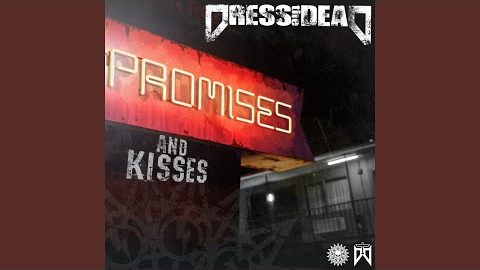
Have you ever played a two-player game on your own? You pop one controller down, pick the second up in order to move the second player along, only to repeat it before giving up and sighing wistfully, thinking about what could have been? That’s kind of the feeling that Greak: Memories of Azur left me with.
This is a 2D side-scrolling action-platformer that never quite feels precise enough in the action, nor the platforming. You control Greak, but also his siblings Adara and Raydel, all of whom have unique skills and traits. Greak is a melee-based swordsman who can double jump. Adara is a mage who can float like Princess Peach after a single jump, or shoot magic darts at enemies. Raydel has a sword and shield, but also a hookshot for traversal. So far, so archetypal.
The thing that makes Greak stand out from the crowd is the fact you control all of these characters at once. An opening tutorial introduces how things are going to play out in both narrative and mechanic form. You switch between the three siblings with the D-Pad, call them to you (if reasonably close) by holding the right trigger, or can hold the left trigger and control them all at once. This can be changed in the options menu, but I never found the sweet spot.
Story-wise, Greak is separated from his family and left to fight his way back to a ramshackle village. It’s fairly simple: find your family, escape from the Urlag invasion, and don’t die.

There are caverns, wooded areas, and temples to explore, but the same enemies seem to pop up wherever you go. Moreover, some of them feel designed to annoy you. The humble bat has seen many video game entries, but I can’t think of too many more frustrating than in Greak. They hover toward you, then stop, then attack: and I must have mistimed my attack a hundred times against these simple foes.
Then there are the arseholes that attack from a distance, but when you close in on them and land a few hits, they teleport elsewhere. How about the blobs that you kill, which then transform into four smaller blobs: two either side of you. With a low health pool and multiple characters to control, these little foibles of Greak start to become real problems.
When you hit a boss encounter, the “multiplayer-but-you-play-all-parts” idea falls apart, too. One boss can be destroyed within seconds by holding the left trigger and having all members of your party wreck him: it’s essentially double damage. A later boss, however, I died so many times that the only solution seemed to be parking the “spare” character out of harm’s reach and making it a one-on-one fight.
You see, you don’t share a health pool, but if one character dies, then that’s game over and back to the save point with you. The fact that they don’t share a moveset means that even getting your heroes to jump over an enemy is likely to cause damage to one of them. It made me wonder if you’re supposed to leave characters at the village, because you can do this easily. But then there will be a puzzle or platforming challenge that requires more than one character and they’re miles away, so I had them tag along all the time.

You can also use ranged combat in Greak by holding the right bumper and standing in place to aim. However, this never feels like the right option. The lead up to a boss might have arrows strewn everywhere, not so much nudging you into thinking that’s the key as it is hammering you over the head with a big sign saying “use the arrows”, but quite honestly, I’m at a loss as to how you’d use a stationary ranged attack during the fast-moving boss battles.
Unfortunately, the world isn’t interesting enough to carry the burdens of combat. It’s devoid of anything interesting to do aside from travel between each area, killing the same enemies ad nauseum to follow the story. Given you’re having to either control all parties at the same time or literally repeat each part of the journey over and over to simply get back to the village to progress the story? Yeah, it’s too much.
Enemies respawn randomly on your journey, it seems, and the fast-travel stone inexplicably charges you gems to use it. These gems aren’t exactly plentiful, and again, will drop randomly from some enemies. You can buy things from a shop, but your inventory will be full half the time, adding a layer of micromanagement that games very rarely bother with.
That inventory, though, is the one cross that’s too much to bear for Greak. Starting with three item slots, you can upgrade it as you progress through the game for all your characters. But it’s never enough. Key items take up slots in that inventory, so you’re forced to eat health items or drop valuables to even take a quest on, at times. The game knows this is an issue, because one of the quest givers even remarked upon the fact I couldn’t carry an item, and told me to come back later when I had space.

It’s the thing that made me angriest during my time with Greak. There’s a cooking mechanic that lets you make health items, but there’s a cap on how many each item slot can hold. It’s maddening to be forced to either drop or run past items you want. One early side-quest I had to do two runs to the same area because I couldn’t pick up the mushroom I needed. An early lesson to learn is: drop anything, because nothing matters away from the key items.
I wish I could recommend Greak: Memories of Azur. The gorgeous, hand-drawn art style is backed by a lush soundtrack that doesn’t barrage you throughout your playthrough. Even artistically, there’s plenty to love. But the imprecise nature of the combat and repetitious back-tracking make it a difficult proposition.
With some rough edges smoothed off, this one could be up there with the likes of Hollow Knight, but instead, Greak is a bit of a frustration. For every hour you enjoy, there’ll be multiple moments that annoy you, and that’s just too hard to look beyond in a crowded genre.
Greak: Memories of Azur releases on August 17, for Nintendo Switch, Microsoft Windows, PlayStation 5, Xbox Series X, and Series S. We reviewed it on the Xbox Series X.
The Verdict
Greak: Memories of Azur is tantalisingly close to being a good game, but multiple design decisions pull it back from a recommendation. Despite a gorgeous art style and pretty soundtrack, actually playing this one is too often a fiddly and imprecise lesson in frustration.
Pros
- Beautiful hand-drawn world
- Lovely audio
- Good concept
Cons
- Frustrating
- Imprecise
- Bad inventory management
The post ‘Greak: Memories of Azur’ review: an action adventure that misses the mark appeared first on NME.








